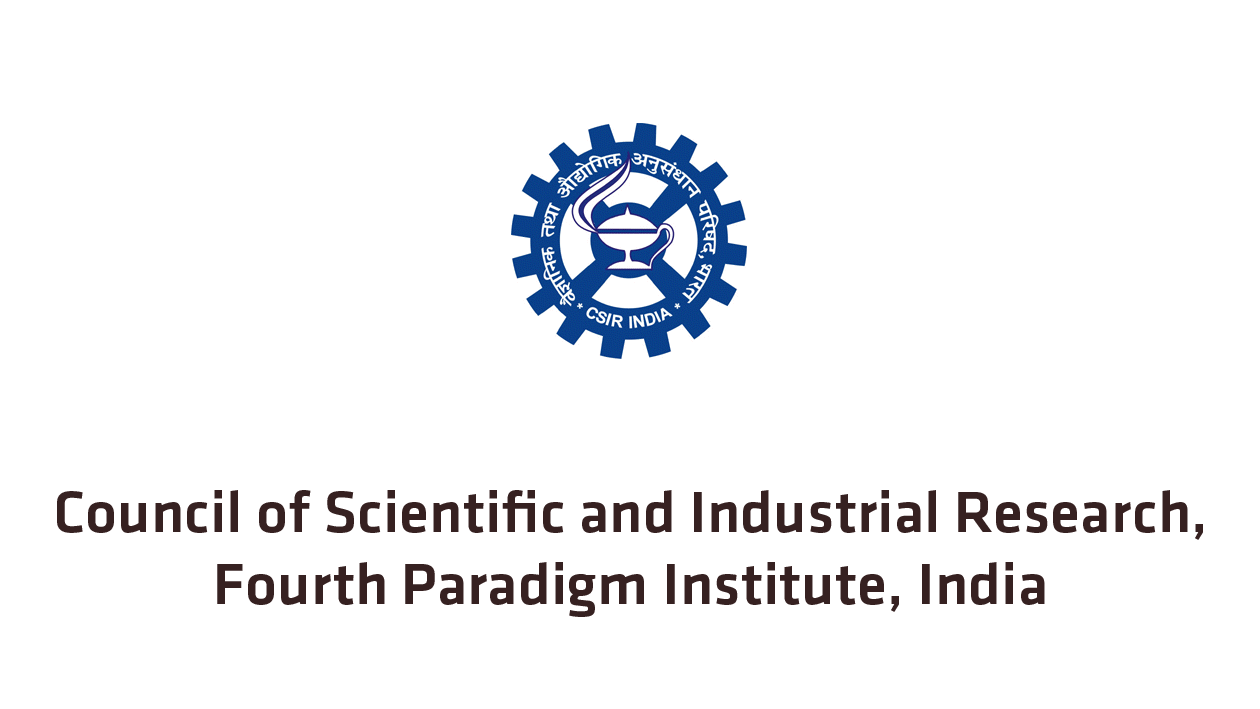AMD COVID-19 HPC Fund Impact
On April 15, 2020, AMD announced the AMD COVID-19 HPC Fund to provide research institutions with computing resources to accelerate medical research on COVID-19 and other diseases. The goal of the AMD COVID-19 HPC Fund was to help researchers not only deepen their understanding of COVID-19, but also improve the ability to respond to future potential threats to global health.
Today, over 25 grantees across eight countries are benefitting from the fund, which has grown to nearly $25M in total market value. With 12 petaflops of total supercomputing capacity awarded, the combined compute capacity donated through the AMD COVID-19 HPC Fund would rank among the fastest supercomputers in the world.1
Research projects of grantees range from evolutionary modeling of the COVID-19 virus, to understanding the virus spike protein activation that occurs prior to first interaction between the coronavirus and human cell, and large-scale fluid dynamics simulations of COVID-19 droplets as they travel through the air.
This processing power has helped institutions solve complex problems, accelerate timelines, and understand data on a deeper level than ever before for workloads related to genomics, vaccine development, transmission science, and modeling, ultimately driving us toward an improved approach not just for COVID-19, but for tackling future global health threats.

Learn how researchers are using their AMD-powered systems
Recipients
Phase 2 / Announced Sept. 14th, 2020

"The computational resources provided by AMD will support the work of Christopher Langmead and Min Xu, both of Carnegie Mellon University's Computational Biology Department, said Russell Schwartz, head of the Computational Biology Department, Carnegie Mellon University. "Langmead will be modeling the evolutionary landscape of coronavirus proteins, which will enable a possible vaccine designed to protect against the SARS-CoV-2 virus that causes COVID-19 and against other coronavirus species as well. Meanwhile, Xu will use an AI technique he developed to automate the large-scale analysis of SARS-CoV-2 images produced via Cryo-ET, a 3D visualization tool for studying subcellular structures and the virus' infection process in host cells."
- Russell Schwartz, head of the Computational Biology Department, Carnegie Mellon University

"CSIR welcomes AMDs decision to donate a supercomputing system dedicated to COVID-19 research in India that will be hosted and managed at CSIR Fourth Paradigm Institute in Bengaluru. This donation will augment our capacity as the leading R&D organization in the country to provide world class high performance computational facilities to the research community”
- Dr Shekhar Mande, Director General, CSIR
"The centralized HPC facility will offer secure computational access to researchers and academicians working to tackle COVID-19 related challenges. It will accelerate the work being done by scientists in India across varied disciplines including biological sciences for vaccine discovery, chemical sciences for drug testing, and engineering to provide effective time bound solutions.”
- Dr Vidyadhar Mudkavi, Head, CSIR-4PI

“COVID-19 has a substantial impact on the research activities of our users and of ourselves,” said HLRS Managing Director Bastian Koller. “As a national supercomputing center, we have been at the forefront of fighting COVID-19, opening our resources for researchers not only in Germany but all over Europe. The generous donation of AMD Radeon Instinct technology will help HLRS accelerate simulations aimed at fighting COVID-19. We see a number of projects that will benefit substantially from these additional resources. Currently, researchers from Miguel Hernandez University in Elche, Spain are using our AMD EPYC CPU-powered HPE Apollo system, Hawk, to run molecular dynamics simulations designed to identify potential inhibitors of a key SARS-CoV-2 protein. Another research team from the University of Natural Resources and Life Sciences in Vienna, Austria is modelling interactions between the virus’s spike protein and humans’ ACE2 receptor. Ultimately, both of these projects are working to identify an effective drug compound as quickly as possible. Beyond these efforts, we are working with government scientists who will use the AMD donation for epidemiological simulations to help better understand the spread of the disease and help try to avoid a second wave in Germany.
- Bastian Koller, HLRS Managing Director

“Supporting world-class researchers in many different fields with cutting-edge IT technology is the key focus at Leibniz Supercomputing Centre (LRZ). This generous AMD donation puts us in the position to offer our partners in the domain of personalized medicine innovative artificial intelligence solutions. While this allows them to address the immediate research needs around COVID-19 in much better ways–e.g. working on improved diagnostic quality and speed–we’re implementing our vision to further integrate HPC and AI to be used in personalized medicine. This will enable our partners to establish high-impact improvements to the treatment of patients suffering from pulmonary diseases in the long-term”, says Prof. Dr. Dieter Kranzlmüller, Director of the Leibniz Supercomputing Centre of the Bavarian Academy of Sciences and Humanities.
- Prof. Dr. Dieter Kranzlmüller, Director of the Leibniz Supercomputing Centre of the Bavarian Academy of Sciences and Humanities

"The Center for Genome Research and Biocomputing at Oregon State University has worked with AMD hardware for many years. The servers provided through the COVID-19 HPC Fund supported the Monarch Initiative's work with Knowledge Graphs and Oregon State’s TRACE program that monitors SARS-CoV-2 variants in our state."
-Chris Sullivan, Assistant Director for Biocomputing in the Center for Genome Research and Biocomputing at Oregon State

“We are very grateful to receive AMD’s donation of high performance servers. The diverse evolution of COVID-19 epidemics in various parts of the world raises numerous, time-critical, location-specific, policy-relevant questions. Computational power like that provided by AMD allows our team to attempt to answer such question more quickly, more deeply, and for more places.”
- Dr. Jereremy Goldhaber-Fiebert

"The exceedingly generous gift from AMD will support our computationally-intensive requirements associated with mapping, mitigation and detection of diseases, including COVID-19. Our team is also engaged in health disparity identification and resolution for the state of Texas, and the associated computations saturate our available computing power," said, Dr. Larry Fulton, associate professor in the School of Health Administration at Texas State University. "AMD is providing one of the solutions to our big data problem—that is, data that taxes our existing capabilities. Some of the methods that AMD is supporting with their gift include machine learning (including deep vision), geographical information systems, complex optimization (e.g., mixed integer nonlinear), and advanced simulation modeling. The computational capability provided by AMD has already helped us with planning our next analysis steps for COVID-19, other infectious diseases, and cancer."
- Dr. Larry Fulton, associate professor in the School of Health Administration at Texas State University

“Our team will be using the allocated resources to perform enhanced molecular dynamics simulations to study the activation process of not only COVID-19, but also other SARS related coronaviruses. AMD is helping exponentially by providing the necessary computational resources to explore the coronavirus spike protein activation that occurs prior to first interaction between the coronavirus and human cell,” said Mahmoud Moradi, assistant professor in the Department of Chemistry and Biochemistry at the University of Arkansas. “The new compute capacity allows us to simulate the motions and interactions of hundreds of thousands of atoms, for billions of simulation frames. Research into this less understood step in the disease could lead us to an alternative approach for designing drugs and vaccines for COVID-19.”
- Mahmoud Moradi, assistant professor in the Department of Chemistry and Biochemistry at the University of Arkansas

“Researchers at the University of British Columbia are engaged in a significant range of projects in response to COVID-19, many of which require access to high-performance computing. Immediate health challenges are being tackled through activities such as disease modeling to predict changes to SARS-CoV-2 and AI-augmented therapeutic discovery, while other researchers are accessing HPC resources to address longer-term social and economic impacts of the pandemic,” says Steve Cundy, the director of UBC’s Advanced Research Computing. “We are very grateful for this donation and support from AMD as it will supplement existing national and institutional resources to help ensure rapid access to HPC capacity for researchers making important contributions to the global response to COVID-19.
- Steve Cundy, the director of UBC’s Advanced Research Computing

"UCLA is grateful for the generous gift from AMD, which will make an important impact on our research at UCLA. We have numerous research groups working on diverse aspects of the Covid-19 problem, from epidemiology to molecular studies aimed at developing therapeutics and vaccines. Many of those studies are limited by computing needs. This new influx of power will be an opportunity for UCLA and AMD to work together in exploiting their processor technologies in new areas of computational research," said Todd Yeates, professor of biochemistry and director of the UCLA-DOE Institute for Genomics and Proteomics
- Todd Yeates, professor of biochemistry and director of the UCLA-DOE Institute for Genomics and Proteomics

“The new HPC system provided by AMD will play a key role in helping us learn how our immune systems respond to the new coronavirus and in finding the biomarkers that help predict which patients will go on to develop severe disease. This information would be instrumental for managing and treating new patients effectively, and will also inform research into new or existing drugs that can target COVID-19. Cambridge University thanks AMD for their generous support of this important research.”
- Dr John Marioni, Group Leader at the Cancer Research UK Cambridge Institute and EMBL's European Bioinformatics Institute.

“AMD CPUs and GPUs will allow our researchers to expand the scope of their COVID-19 work while also helping them accelerate their timeliness significantly..This includes everything from identifying viral spike protein mutations that could help improve vaccines to using machine learning technology to study COVID disease severity in patients of all ages, from newborns to the elderly.”
- UT’s Interim Vice President for Research Alison R. Preston

"This new partnership is critical in helping the University of Toronto accelerate research on COVID-19 and develop innovations that will mitigate the impact of the pandemic on communities. The donation of cutting-edge computing resources will allow the University of Toronto and our affiliated hospitals expand our current infrastructure and launch SciNet4Health, a platform that can securely process big data sets of private health information to advance the discovery of therapies, vaccines and disease mutations. This donation brings us one step closer to the healthcare of the future.”
- Alex Mihailidis, Associate Vice-President of International Partnerships

“The computational resources that AMD is providing will be inserted in our on-going gene@home project that aims to discover the causal relationships between the expression of genes. In particular, we plan to speed-up specific inquiries about genes interacting with SARS-CoV-2 in collaboration with the medical researchers and students in the Laboratory of Biological Data Mining. The AMD initiative is very timely for us and we expect that it will also push us forward in making further analysis methods feasible“ commented Enrico Blanzieri, professor, Department of Information Engineering and Computer Science, University of Trento.
- Enrico Blanzieri, professor, Department of Information Engineering and Computer Science, University of Trento

"COVID-19 has had a tremendous impact on the research focus of our faculty,” said Kirk Dombrowski, vice president for research at the University of Vermont. “Since so much of this work at UVM requires high performance computing, we are very grateful to AMD for their generous gift. We will use the enhanced computing power on a wide range of important projects. These projects include analyzing the structure and behavior of the spike protein in the SARS-CoV-2 virus; creating large scale fluid dynamics simulations of COVID-19 droplets as they travel through the air and spread the disease; performing real-time analysis of billions of Tweets to find correlations between word usage and confirmed COVID-19 cases; modeling the interaction between social distancing behavior and PPE use in stemming transmission of the virus on college campuses; and analyzing the interplay between contact structure, interventions and behavior on pandemic dynamics. The outcomes of these projects have implications for public health policy and serve the broader goal of helping prevent a second wave.
- Kirk Dombrowski, vice president for research at the University of Vermont

"The AMD computing power will be enormously helpful as VCU's researchers bring together AI and mass spectrometry to seek new treatments for diseases including COVID-19," said Joseph T. DiPiro, dean of Virginia Commonwealth University's School of Pharmacy. "We are grateful for the generous support from AMD for this groundbreaking research at VCU."
- Joseph T. DiPiro, dean of Virginia Commonwealth University's School of Pharmacy

"The new servers provided by AMD will help us accelerate some of the initial simulations we do to jump-start projects on Folding@home. Maybe more importantly, they’ll enhance our ability to process all the data coming in from Folding@home in a timely manner, advancing our understanding of SARS-CoV-2 and revealing opportunities to combat COVID-19."
- Greg Bowman, associate professor of biochemistry & molecular biophysics at Washington University School of Medicine and director of Folding@home
Phase 2 Recipients also include -
- GENCI/French National High-Performance Computing Agency
- Boston Children's Hospital
- North Carolina A&T State University
- Howard University
Phase 1 / Announced June 1st, 2020
New York University
“The computing resources donated by AMD will be put to use by NYU researchers from a wide range of disciplines in projects to address the many important facets of the COVID-19 crisis, including: discovery of drugs that may be therapeutic for COVID-19 and future SARS virus mutations, retrieval of relevant research results from the vast biomedical literature, analysis of medical imaging for screening of patients, and analyzing political attitudes and voting behavior in response to financial hardships.”
- Russel Caflisch, director of the NYU Courant Institute of Mathematical Sciences
Rice University
"The AMD gift will be truly transformational for Rice's computational attack on COVID-19." "We have the methods to progress, but studies of large, complex systems are at the cutting-edge of computational feasibility. The AMD contribution of dedicated, state-of-the-art computational power will be a game changer in accelerating progress toward defeating this virus."
- Peter Rossky, dean of Rice's Wiess School of Natural Sciences
Massachusetts Institute of Technology
"Across MIT we are engaged in work to address the global COVID-19 pandemic, from that with immediate impact such as modeling, testing, and treatment, to that with medium and longer term impact such as discovery of new therapeutics and vaccines. Nearly all of this work involves computing, and much of it requires the kind of high performance computing that AMD is so generously providing with this gift of a Petaflop machine."
- Daniel Huttenlocher, dean of the MIT Schwarzman College of Computing
Footnotes
- According to November 2021 Top500 List https://www.top500.org/lists/top500/list/2021/11/
- According to November 2021 Top500 List https://www.top500.org/lists/top500/list/2021/11/
